Publication of the Fourth Report of the Japan Doctoral Human Resource Profiling
01/25/2022


In Japan, approximately 15,000 people complete a doctoral program every year. However, compared to other developed countries, it is difficult for Japanese graduates to maintain careers that make the most of their expertise.
The National Institute of Science and Technology Policy (NISTEP) has been conducting the Japan Doctoral Human Resource Profiling project since 2014, with the aim of improving research and employment environments for doctoral graduates and gathering evidence to realize objectively- grounded policy formation.
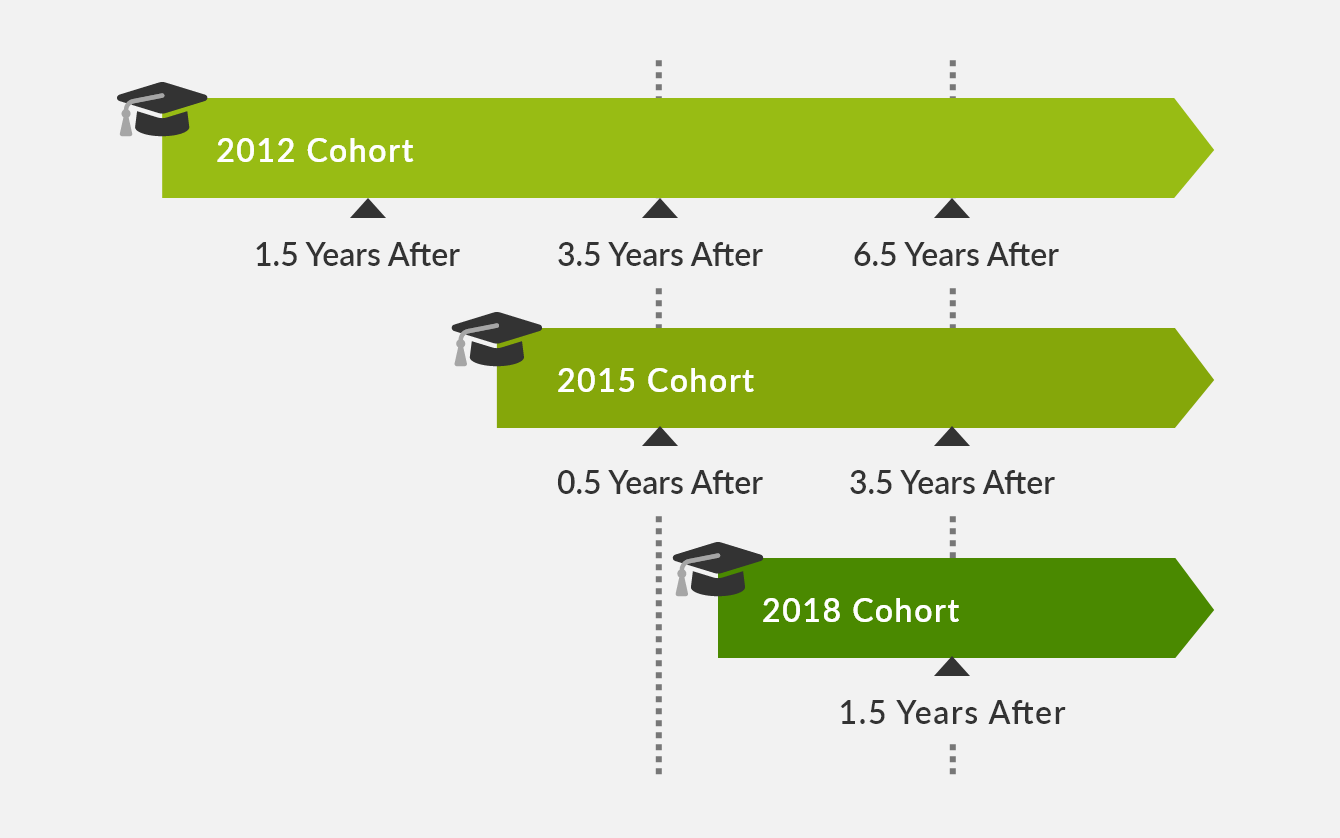
The target population for the survey is everyone who completed a doctoral program in the designated survey year, including the graduates who completed coursework without receiving a degree.
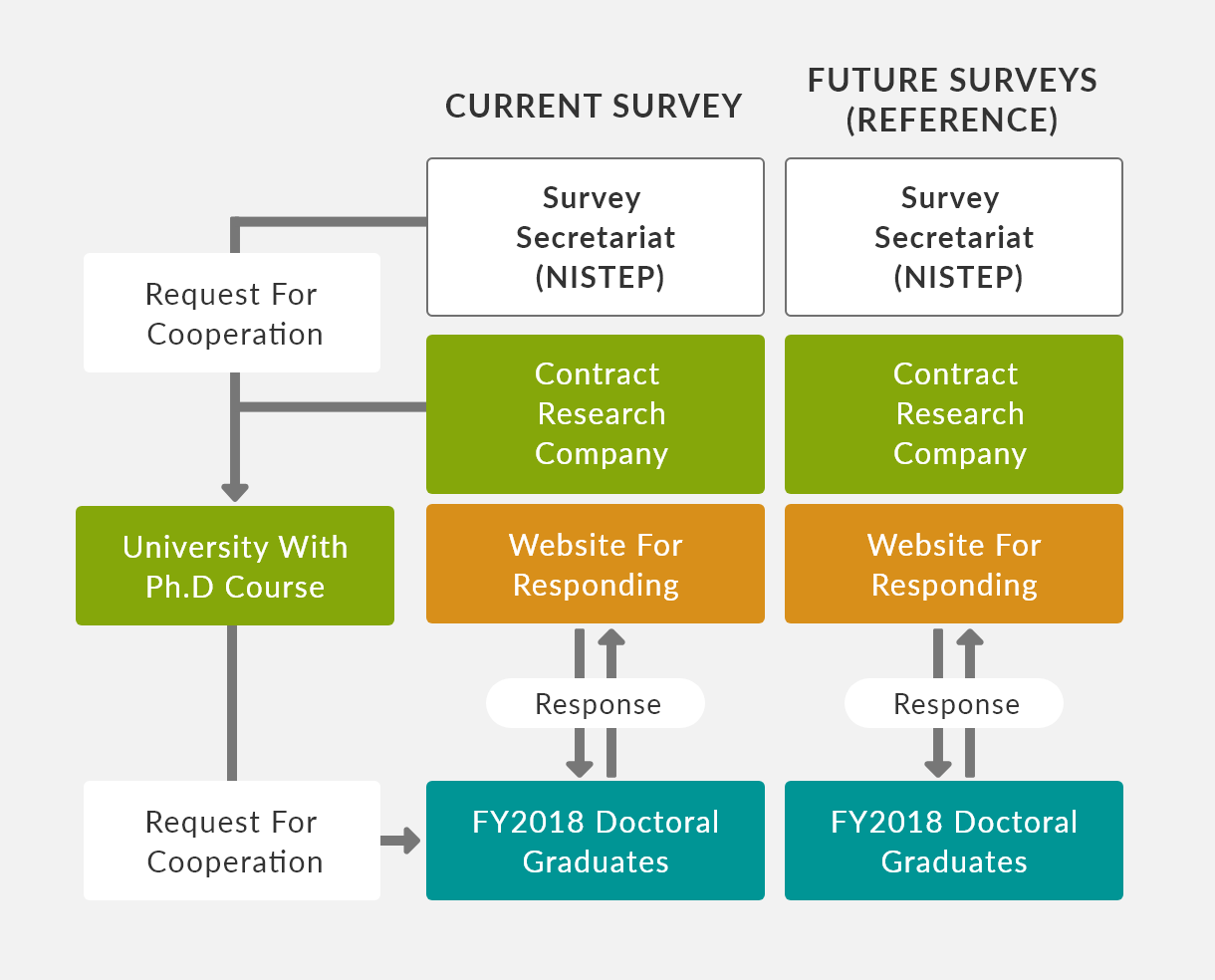
For the initial survey, the university at which a doctoral program was completed will send a letter of response request to eligible individuals by email or mail
These individuals will be asked to respond by logging in to the designated website, the information for which will be provided in the letter.


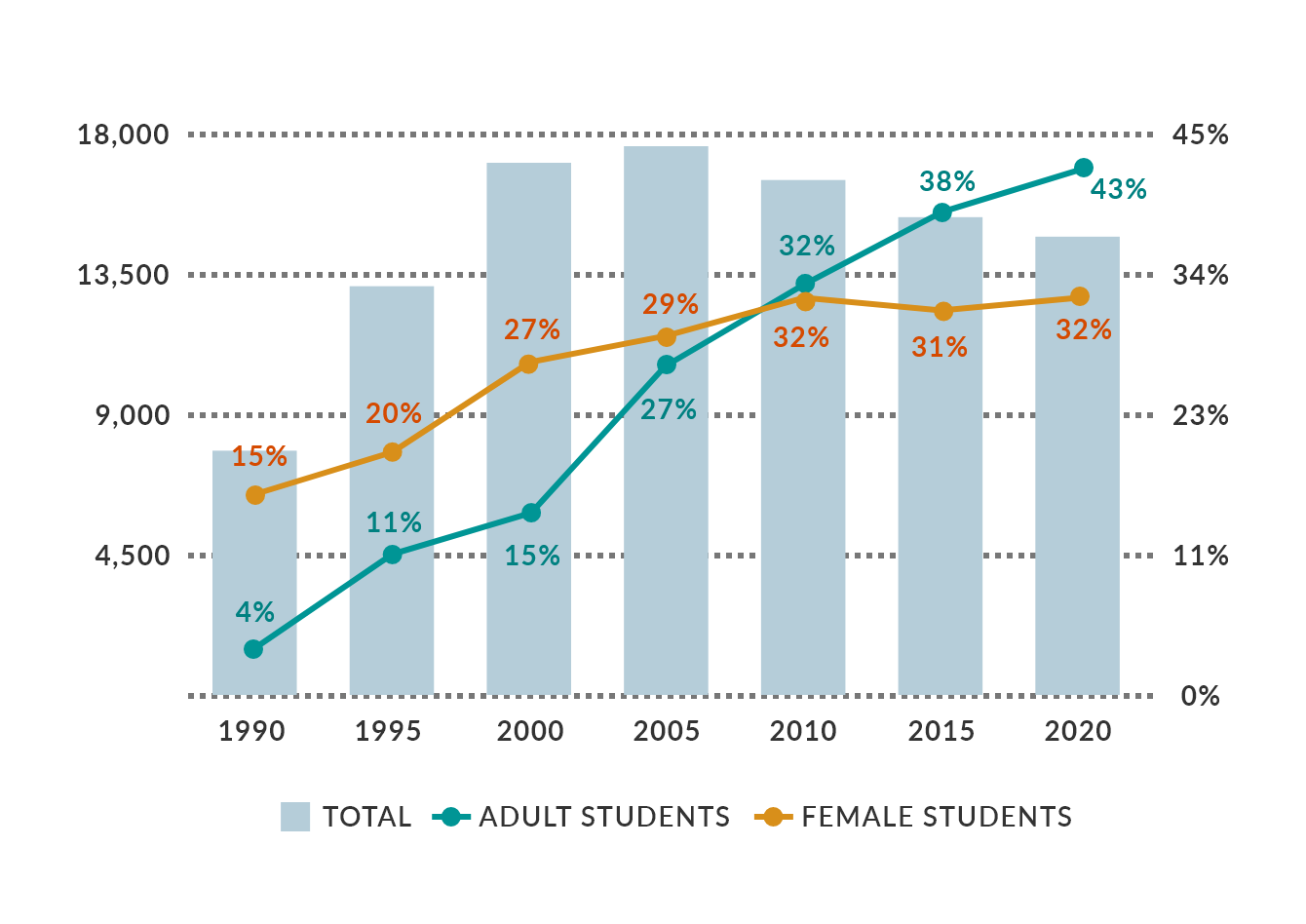
The percentage of working adult students enrolled in doctoral programs has exceeded 40% since 2016, and an increasing number of students are pursuing doctoral degrees while still employed. Meanwhile, the percentage of female students has remained at around 30% for the past decade.
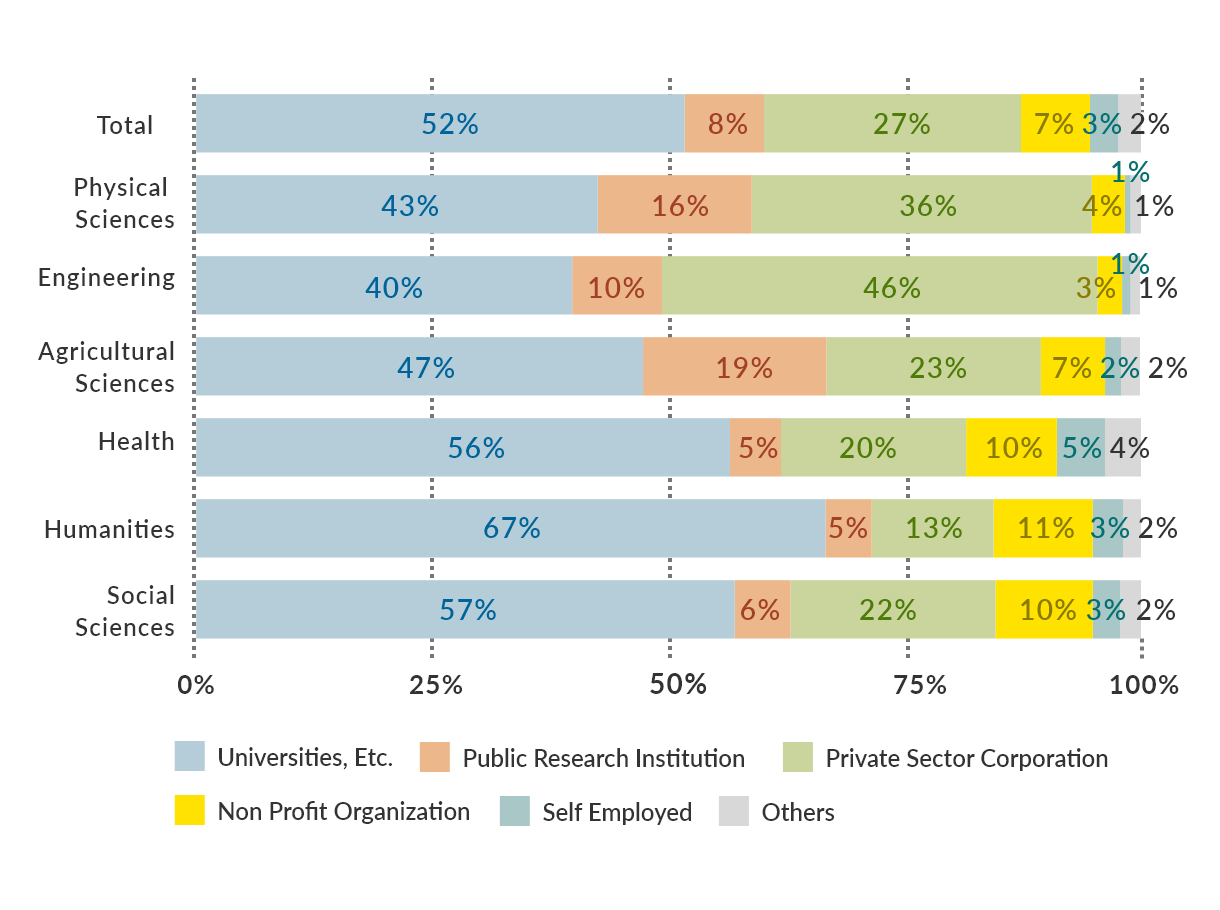
After completing their doctoral programs, around half of the respondents were employed by universities, and about a quarter were employed by companies. By contrast, higher percentages of engineering (46.1%) and science (36.0%) graduates were employed by companies. While nearly 70% (66.6%) of humanities majors were employed by universities, a high percentage of them were in part-time, temporary, or other unstable positions with limited terms (for details, see “9. Employment Status” on p. 32 of the Fourth Report).
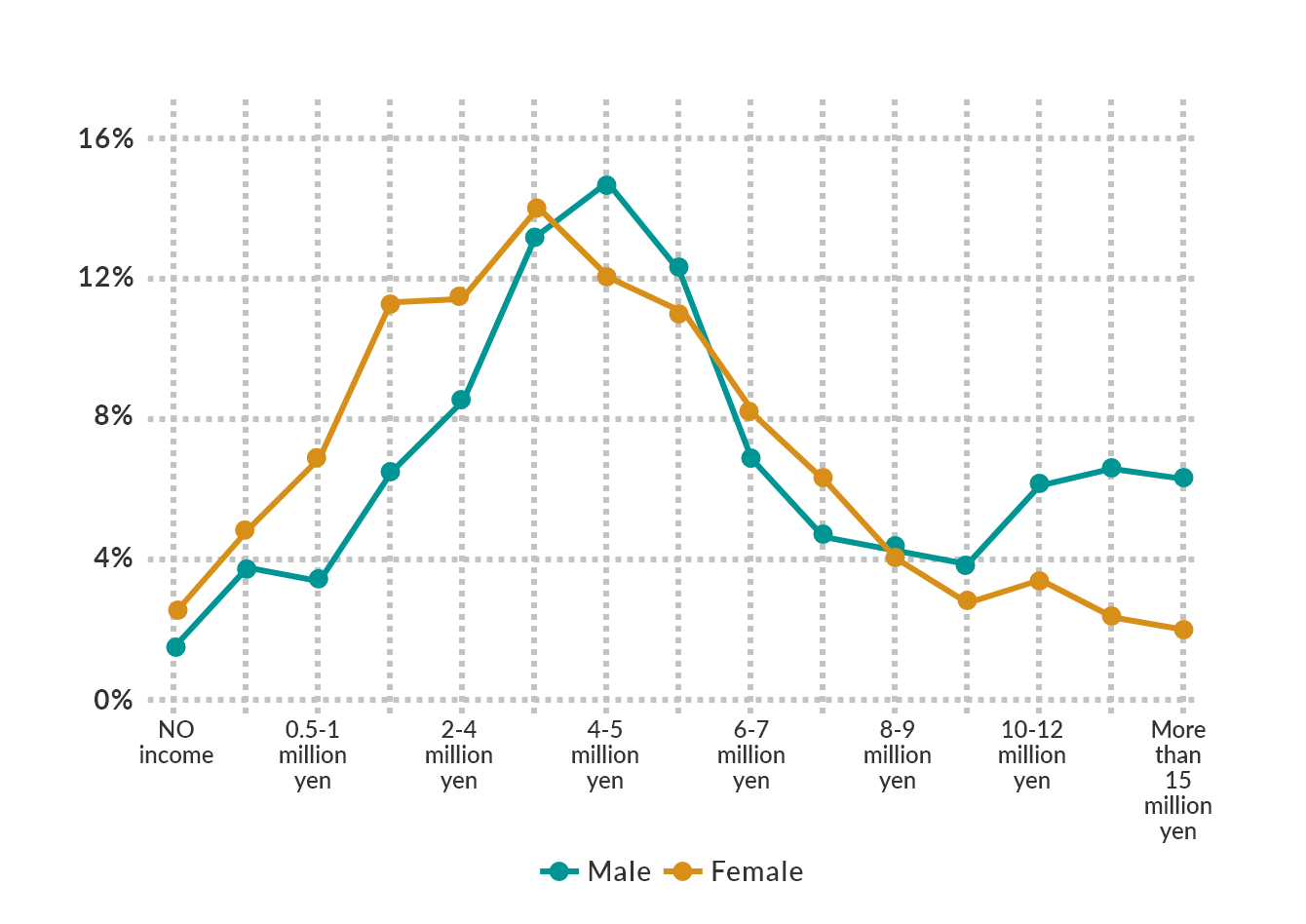
Looking at the annual income of 2018 doctoral graduates by gender, the highest percentage of men reported an annual income of 4–5 million yen, while the highest percentage of women reported an annual income of 3–4 million yen. In addition, nearly 20% of all male respondents had incomes of over 10 million yen, while only about 5% of female respondents had incomes of over 10 million yen, indicating that there are differences in employment status and wages between men and women (for details, see “11. Income Status” on p. 40 of the Fourth Report).
These students are mostly in the natural sciences, mainly science and agriculture, and are employed as post-doctoral fellows through competitive research funding or as assistant professors. About 80% of them are employed on a limited-term basis, with the majority of them having a short term of three years or less. Although they have incomes of about 3–5 million yen for full-time employment and find the research, per se, rewarding and satisfying, their future prospects are uncertain due to insufficient tenure positions.
Most of the doctoral graduates employed in the private sector are working full-time in research positions at large companies. Their job satisfaction is high, and the compensation is remarkably stable and satisfying. However, positions are limited for researchers.
The needs of working adults are truly diverse. There are graduate students who go on to higher education as physicians as a matter of course, and there is also a certain number of working adults who come from companies to pursue doctoral degrees. Some of them need degrees for their work or in order to foster better relationships with overseas researchers, and others intend to organize what they usually do at work into dissertations.
As is the norm in their field, these students tend to take longer to obtain their degrees. They are not too unhappy about preparing their dissertations while working as adjunct instructors or researchers. This is more likely the case for those in the humanities, where it takes a long time to earn a degree and income levels are lower. In graduate school, students are mainly supervised by a faculty advisor, but their supervision is infrequent.
Many come to Japan by obtaining fellowships or tuition waivers. They come to Japan to become university faculty members or to earn higher incomes, but about half of them return to their home countries after receiving their degrees. Gaining employment in Japan is more difficult for them than for Japanese students.
Women account for about 30% of doctoral graduates, and they are more likely than men to go into academia. In non-academic employment, they are less likely to be full-time employees. The relationship between life events and career development in full-time jobs needs to be examined in detail through the construction of follow-up data.
The Japan Doctoral Human Resource Profiling project is conducted to understand the status of doctoral graduates’ careers and to formulate policies that will contribute to the improvement of the graduate employment situation.
We would greatly appreciate your cooperation if you, as a doctoral graduate, become a participant in the survey.
01/25/2022
11/27/2020
02/28/2018
11/04/2015